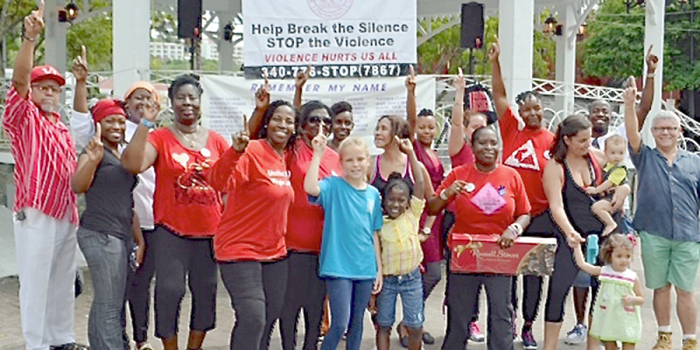
Ghana joins 16 days of global campaign to end violence against women, girls
Friday, November 25, marked the commencement of 16 days of activism against gender violence, which is a global campaign for nations to reflect on some practical ways to prevent and respond to ending violence against women and girls.
Advertisement
Violence against Women and Girls (VAWG) is a global pandemic that cuts across all borders and impacts on societies regardless of race, socio-economic status, ethnicity, religion or political affiliation.
The current trend of VAWG includes violence experienced by teenagers in relationships, the violation of the rights of girls using Internet and social media, using young girls for “sakawa” rituals, incest, early marriages and various kinds of abuse in schools and within various communities by well-known people. The nature of VAWG is worrying and efforts need to be put in place to prevent its occurrence.
Devastating effect
Given the devastating effect violence tends to have on women and girls, efforts have mainly been focused on responses and providing access to justice services for survivors as against prevention and creating the space to deal with the root causes of this epidemic.
As we celebrate the global campaign of 16 days of activism against gender-based violence, there is the need for us to reflect on some practical ways to prevent and respond to ending violence against women and girls.
Creating safe space
One of such means is to identify and create safe spaces for women and girls in school and within their respective communities. However, the best way to end violence against women and girls is to prevent it from happening in the first place by addressing its root and structural causes.
We should begin to focus on creating a model to sustain a preventive institutional and social environment. The creation of safe spaces for women and girls has emerged as a key strategy for the protection and empowerment of women and girls.
Safe space could be defined as formal or informal places women and girls feel physically and emotionally safe. It is an enabling environment provided for women and girls, in the absence of trauma, intimidation, excessive stress, violence or fear of violence, or abuse, where girls go for inspiration and confidence to build their skills.
It is also a space where women and girls are able to express themselves freely without the fear of judgement or harm. Safe spaces are all about relationships, a place where women and girls go to connect, learn from their role models, among others.
Importance of safe spaces
- Safe space for women and girls is important because it creates a space where women and girls have equal opportunity to be healthy, secured and happy. It also recognises that gender and gender relations between women and men are key factors in how these spaces are organised and developed.
- It promotes the rights of women and girls as a condition for equitable and sustainable communities.
- It is a useful tool to improve the quality of urban and community life and to reduce women’s fear and victimisation.
- It recognises that women’s fears are based on reality (the relationship between feelings of fear and experiences of violence) and that women know when and where they feel unsafe in the cities and why.
- It recognises and provides an enabling and safe environment for women and girls to learn from one another and build strong sisterhood which strengthens their efforts to challenge negative social norms. These safe spaces are useful tools to improve the quality of community life for everyone, and to reduce women’s fear and victimisation.
Titbits on ensuring safe spaces:
Understand and adhere to the ethical and safety recommendations stated in the international and national standards.
Ensure equal and active participation by women and men, girls and boys in assessing, planning, implementing, monitoring and evaluating programmes through the systematic use of participatory methods.
Interventions on VAWG should be integrated and mainstreamed into all programmes and all sectors. The spaces should establish and maintain carefully coordinated multi-sectorial and inter-organisational interventions for the prevention of and response to violence against women and girls .
It is important to engage the targeted community fully in understanding and promoting gender equality and power relations that protect and respect the rights of women and girls.
The government must extend the fullest cooperation and assistance to organisations and institutions in preventing and responding to VAWG.
Last but not least, is the need to fully build the capacity of key persons involved in the prevention of and response to VAWG to understand and sign a code of conduct.
Early prevention schemes
Prevention should start early in life by educating and engaging girls and adolescents on promoting respectful relationships and gender equality. “Catching them young” and creating an enabling environment for them is one of the best ways to sustain progress on preventing and eradicating gender-based violence.
Many organisations, including Women in Law and Development in Africa (WiLDAF), Ghana, have put in place preventive programmes in schools by establishing Girls Empowerment Clubs, such that while public policies and interventions often overlook this stage of life, it is a critical time when values and norms around gender equality are forged.
Prevention is not only possible, it is essential. Prevention has the potential to create numerous benefits for communities beyond reductions in violence because it addresses the discrimination, inequality and other violence-supportive practices and behaviours that contribute to a range of social ills.



